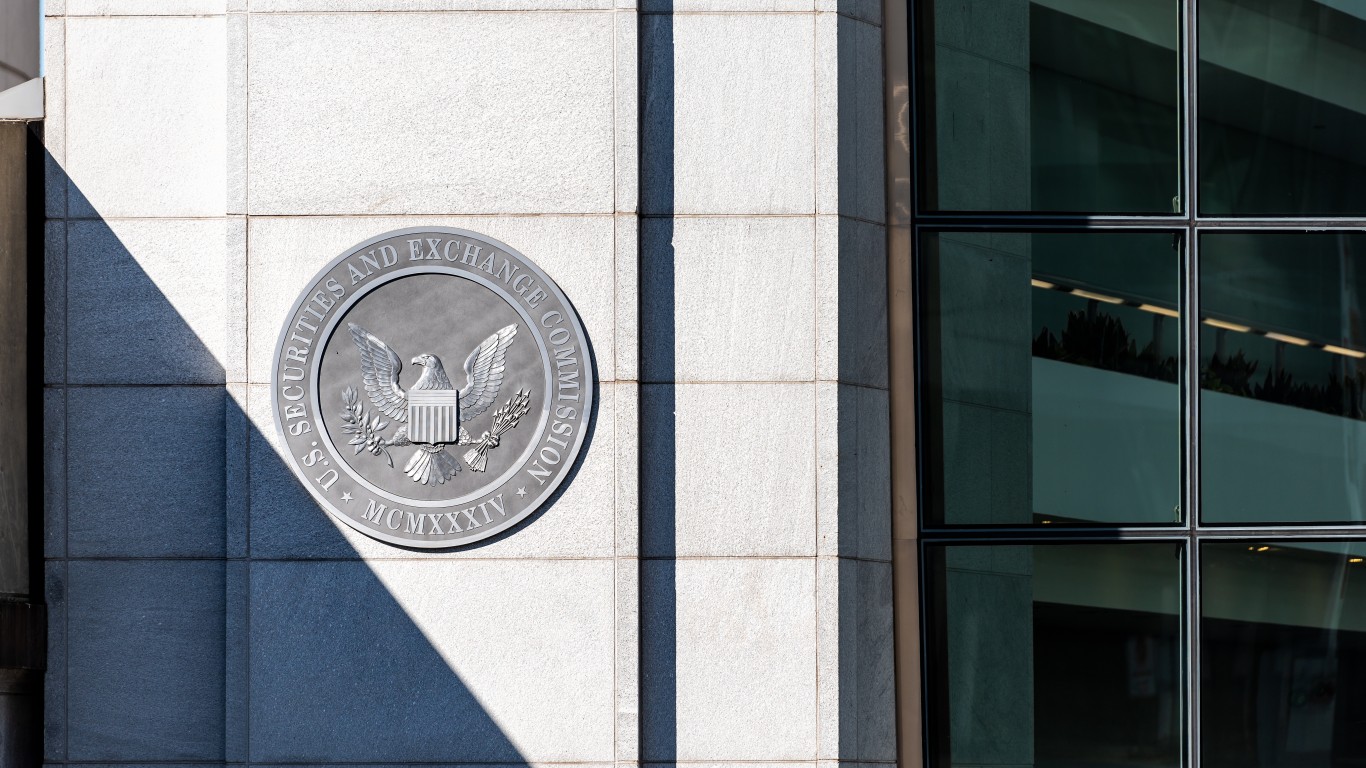Investing
DeFi Staking Tokens Rise Following SEC Crackdown on Centralized Staking

Published:

The SEC sent shock waves across the crypto market by targeting Kraken’s crypto staking services with claims that they qualified as securities. While the move saw significant cryptocurrencies like Bitcoin and Ethereum plunge, some tokens, specifically those related to decentralized platforms, spiked higher.
When FTX, once the third-largest cryptocurrency exchange in the world, failed in November last year, there were renewed calls for crypto regulation from both commentators and officials. It was definite that stiffer regulation was coming, and it seems that the time has now arrived.
In what looks like a synchronized crackdown, the SEC and other regulatory agencies have ramped up their scrutiny of crypto companies. Last week, Binance, the world’s largest crypto exchange, announced that it was suspending U.S. dollar withdrawals and deposits for international customers.
The move was likely due to issues with their banking partner Signature Bank, which said last year that it intends to reduce its crypto exposure. The bank also raised transaction minimums for dollar transfers last month, announcing that it would only process trades by users with USD bank accounts over $100,000.
Last week, the SEC claimed Kraken violated US securities law with its staking service. The agency agreed with the crypto exchange to stop offering staking services or programs to clients in the country and pay $30 million in fines.
The SEC claimed that Kraken violated U.S. securities law with its staking service, which the commission qualified as securities. Following the news, Coinbase CEO Brian Armstrong declared that crypto-staking services are not securities, adding that he is willing to defend this in court.
And more recently, the SEC threatened Paxos, a US-registered firm that issues Binance’s stablecoin Binance USD (BUSD). The agency argued that BUSD is considered an unregistered security.
Crypto markets retraced following the recent wave of regulatory crackdown. Bitcoin, the largest cryptocurrency exchange in the world, has lost more than 4% over the past week, while Ethereum has shed around 7% amid growing concern about a crackdown on centralized staking services.
The token prices related to decentralized platforms, specifically decentralized staking service providers, spiked higher following the shutdown of Kraken’s staking service. That is because the shutdown of centralized staking providers may open the door for several decentralized staking services.
As reported, Coinbase, which started to offer liquid staking in late August 2022, accounted for 16% of the ETH liquid staking market. Together with Kraken, the duo makes up 20% of the ETH staking market. If the SEC shuts centralized stakers, this market share would be up for grabs by decentralized staking platforms like Lido, Rocketpool, and Frax.
That is why the token prices of these platforms have surged higher over the past week despite the overall downtrend in the crypto market. Lido’s LDO has gained around 8% over the past week. Rocket Pool’s RPL and StakeWise’s SWISE are also up by 10% and 8% over the past 14 days, respectively.
It is worth noting that DYDX, the native token of the major decentralized exchange dYdX, has been the top performer among the largest DeFi perpetual exchange tokens so far this year. The token has gained around 125% this year, followed by Gains Network (GNS) and GMX (GMX), which are up 110% and 43%, respectively.
Last year, the decentralized perpetual exchange GMX attracted loads of new users following the collapse of FTX, which created a gap in the crypto perpetual trading market. Gains Network was another DEX to benefit from the collapse of FTX.
Meanwhile, Bitcoin is trading at 21,838.57, up by 0.7% over the past day. Ethereum is hovering around 1,511.22, up by 1.4%. Solana’s SOL, which has gained more than 4% over the past day, is the top performer among the 20 largest crypto assets by market cap.
This article originally appeared on The Tokenist
The Average American Is Losing Momentum On Their Savings Every Day (Sponsor)
If you’re like many Americans and keep your money ‘safe’ in a checking or savings account, think again. The average yield on a savings account is a paltry .4%1 today. Checking accounts are even worse.
But there is good news. To win qualified customers, some accounts are paying more than 7x the national average. That’s an incredible way to keep your money safe and earn more at the same time. Our top pick for high yield savings accounts includes other benefits as well. You can earn up to 4.00% with a Checking & Savings Account today Sign up and get up to $300 with direct deposit. No account fees. FDIC Insured.
Click here to see how much more you could be earning on your savings today. It takes just a few minutes to open an account to make your money work for you.
Thank you for reading! Have some feedback for us?
Contact the 24/7 Wall St. editorial team.